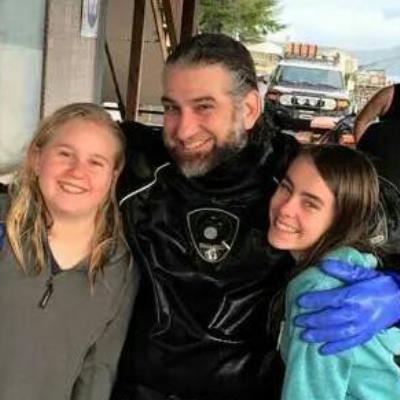I am a NAUI Instructor! NAUI, the "National Association of Underwater Instructors" exemplifies what I love about scuba diving education! "NAUI is the largest non-profit and most respected dive training and certifying organization in the world." They've been teaching divers safely since 1959 and has "the highest training standards in the recreational diving industry." NAUI is more than just a certification agency as each Instructor is a "Member" and has an "equal vote in the Association's leadership, its Board of Directors." It's a great honor and I feel privileged to be a part of this great organization! I taught from 2008 to 2013 as an SSI Advanced Open Water Instructor. As of July 15, 2015, I have certified 343 students. I always worked "in" a dive shop. By being an independent NAUI Instructor, now, I work "with" dive shops, but as a partner. I now have the, "freedom to meet the academic needs of my students."
Show
Following
-
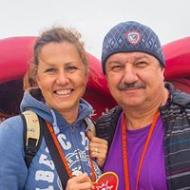
Andrey Shpatak (SHAG) I live and dive in the north of the Sea of Japan, about 500 km from Vladivostok. My first dive scuba was in 1977 in the Rudnaya Bay. I have more than 4,000 log the dives now. MSDT PADI instructor #621296 since 2010. Underwater photographer since 1998.
-
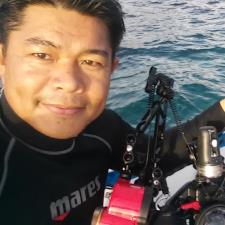
Arnico Lumangyao Cartalla (CelestialBeing) I am a Dive Master ans an amateur underwater photographer
-
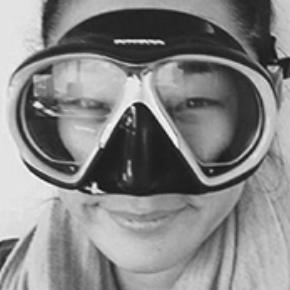
Bori Bennett (Boribennett) SDI-TDI-ERDI Solo Diver
-
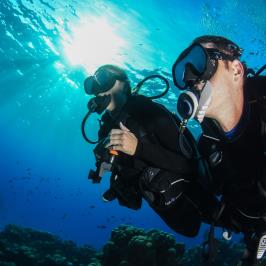
Bryan Swanson (SubmergedPhotography) As a biologist and underwater photographer of over 14 years my true love is bringing the beauty of sea life to the eyes of everyone. I have photographed reef systems all over the world and have seen first hand why marine conservation is extremely important. Overfishing and pollution from runoff are just a couple examples of human impact destroying marine ecosystems. I believe we can stop this destruction through education and bringing local governments around the world to focus on marine conservation. I hope my pictures help with educating and influencing a love for marine life. My fiancé Jen and I are traveling to the Philippines in May for our Honeymoon and can't wait for some amazing diving.
-
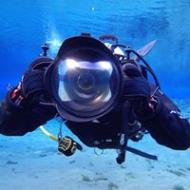
-

Chris Paparo (FishGuyPhotos) Born and raised on Long Island (New York), I have been exploring the wilds of the island for over 30 years. As a wildlife photographer, writer and lecturer, I enjoy bringing public awareness to the diverse wildlife that calls the island home. My passion for coastal ecology, fishing and the outdoors led me to obtain a BS in Marine Science from LIU/Southampton and I currently manage the new Marine Sciences Center at the Southampton campus of Stony Brook University. In addition to freelance writing for several fishing and wildlife related publications, I currently writes the monthly Naturalist’s Logbook column for the NY/NJ edition of On The Water Magazine. Although my work tends to focus on marine life, everything in the natural world is fair game. Follow @fishguyphotos on Facebook, Instagram and Twitter or by visiting my website at www.fishguyphotos.com
-
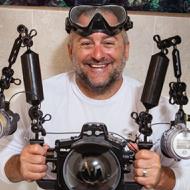
-
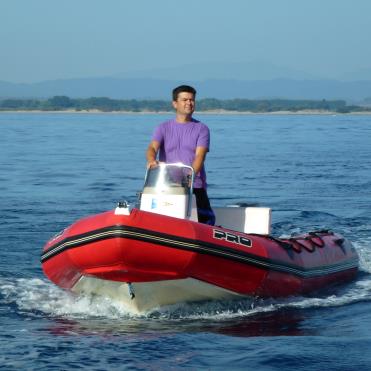
David Antoja (davidantoja) Scuba instructor and underwater photographer. My images are specially focused for conservation and protection of the Mediterranean sea. CMAS One Star Instructor
-
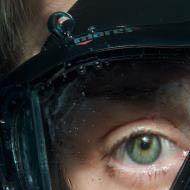
Divepanthers (Divepanthers) Recreational divers from the far north of Europa. Always diving in warm waters and doing 2-3 dive trips a year. Hobby underwater photographers. Favorite destination is Indonesia.
-
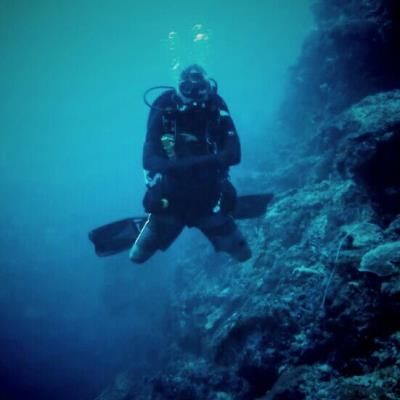
Francis (Maddiver) diving is everything... PADI Divemaster
Addressing the issue of diver competence
Divers are initially qualified through a certification process, but they remain qualified only through continued experience. In no field can certification alone guarantee competence. The overwhelming majority of the horror stories that you and I have both witnessed come from these "occasional divers." With lengthy downtime between dives, skills will decay. This is why divers should understand the implication of curtailing their diving for long periods, and be willing to admit and accept the need for some remedial measures. That can mean taking a formal refresher class, or just diving under the supervision of a professional until they regain their sea legs. Unfortunately, many divers never heed this advice, or never understand the degree to which their skills have eroded until it's too late. (Hence, all the rescues you mention.) Additionally, if divers are unlikely to heed the advice to maintain skill competence, this shortsightedness is likely to spill over into poor decision making.
